Barbados is a stunning island in the Eastern Caribbean that has long been a favorite of both tourists and locals. However, this idyllic paradise is now facing a serious threat – climate change.
The effects of climate change are being felt by more and more people every day, some of which, tragically, cannot be reversed.
In this blog post, we’ll take a closer look at how climate change is affecting Barbados and what this means for the island’s future.
Rising Sea Levels: Disappearing Beaches
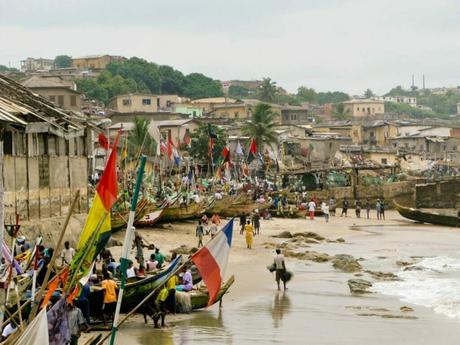
Rising sea levels are one of the most obvious and direct effects of climate change in Barbados.
Due to the concentration of the majority of people and economic activity around the coastlines, even a slight rise in sea levels poses a serious hazard. Global sea levels are rising as a result of melting polar ice caps and thermal expansion of seawater as the Earth’s temperature rises.
This has caused iconic beaches in Barbados to erode and crucial coastal infrastructure to be destroyed. A study by the University of the West Indies found that the sea level around Barbados has been rising at a rate of 2.04 millimeters per year since 2001. Although it might not seem like much, over time it adds up.
In fact, in just a few decades, some beaches, like Accra Beach, have already lost up to 50% of their original width.
Increasingly Intense Weather Patterns: A Stormy Future
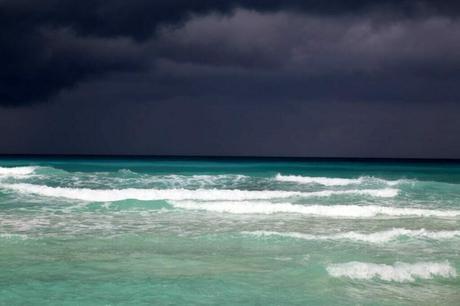
In addition to raising sea levels, climate change is also leading to more extreme weather patterns. Hurricanes and tropical storms are increasing in frequency and intensity as ocean temperatures rise, which is a big issue for Barbados.
The island has already come dangerously close to being hit by devastating hurricanes like Irma, which caused widespread destruction on neighbouring islands in 2017.
But that’s not all; additional heavy rains brought on by climate change is increasing the island’s inundation. In 2020, Barbados was hit with heavy rains that caused massive flooding, damaging everything from homes to commercial buildings and infrastructure.
These extreme weather events are anticipated to become more frequent as climate change intensifies, endangering the citizens of Barbados and its infrastructure even more.
Coral Reefs: The Silent Victims
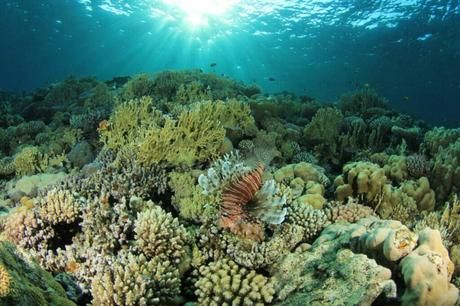
Coral reefs are incredibly important ecosystems that support both the local economy and marine life in Barbados. However, climate change is putting these reefs in danger.
Rising ocean temperatures are causing coral bleaching, which occurs when corals expel the algae that inhabits their tissues and turn white before dying, to occur more frequently and severely.
This is devastating the reefs around Barbados.
In addition to coral bleaching, ocean acidification is another consequence of climate change that is impacting the coral reefs in Barbados. When more carbon dioxide is absorbed from the atmosphere, the ocean becomes more acidic, making it harder for corals to build their calcium carbonate skeletons.
This results in weaker and more fragile reefs.
The loss of coral reefs has far-reaching effects on the island, as tourism and fishing industries rely on healthy reefs for their survival. The marine ecology is also threatened by the decline of these important ecosystems.
We must act to safeguard and preserve these reefs since they are an integral element of Barbados’ culture and economy.
Water Scarcity: A Growing Concern
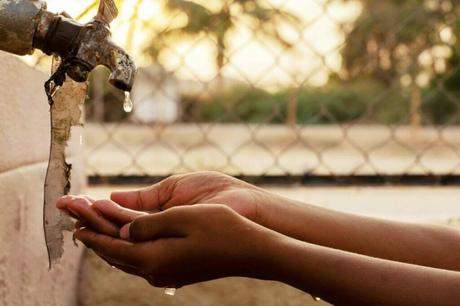
Water scarcity is becoming a major issue for Barbados as climate change continues to worsen. With rising temperatures, unpredictable rainfall patterns, and higher evaporation rates, the island’s already limited freshwater resources are under increasing strain. This is impacting not only the overall quality of life on the island, but also home use and agriculture.
Barbados relies heavily on underground aquifers for its freshwater, but rising sea levels are making saltwater intrusion into these aquifers a serious concern. If the freshwater supply becomes contaminated, it could become unfit for irrigation or consumption.
Droughts have also increased in frequency in Barbados, exacerbating the problem of water scarcity.
In 2019, the island experienced one of its worst droughts in recent memory, leading to the implementation of emergency measures like water rationing. Due to the detrimental effects it has on the island’s economy, environment, and standard of living, water scarcity in Barbados is obviously an issue that needs to be addressed right away.
Adapting to Barbados Climate Change: A Path Forward
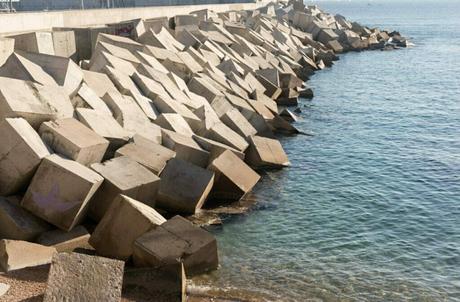
Barbados is taking action to adapt to and lessen the effects of climate change despite the difficulties it faces. The Coastal Risk Assessment and Management Program (CRMP), which aims to protect beaches from erosion and develop coastal infrastructure, is one such initiative.
The island’s coral reefs are also being restored and preserved through coral transplantation and the establishment of marine protected areas. These measures are crucial for the sustainability of the local tourism and fishing industries, which rely heavily on healthy reefs.
To lessen its dependency on fossil fuels and reduce carbon emissions, Barbados is also investing in renewable energy sources.
The government announced an ambitious plan in 2019 to switch the nation entirely to renewable energy by 2030. This indicates Barbados’ dedication to the global fight against climate change as well as its readiness to enact measures to safeguard the environment and its people’s sustainable future.
Agriculture and Food Security: A Growing Challenge

Beyond the island’s beaches and marine habitats, climate change is significantly affecting Barbados’ agriculture industry and food security.
Farmers are finding it more difficult to maintain a sustainable food supply as a result of unpredictable weather patterns, extended droughts, and soil erosion.
Crop yields in Barbados are impacted by the frequency of droughts and heavy rain events because the island is particularly susceptible to changes in temperature and precipitation patterns.
Soil degradation, caused by erosion and saltwater intrusion, further reduces the fertility of the land. Despite these challenges, both Barbadian farmers and the government are exploring potential solutions to ensure a sustainable food supply.
One potential solution is adopting climate-smart agricultural practices, such as drought-resistant crops, water-efficient irrigation systems, and agroforestry.
There is also a growing interest in promoting local food production and consumption to reduce the island’s reliance on imported food and improve food security. These efforts are essential for securing a sustainable future for Barbados and its citizens in the face of ongoing climate change.
Health Implications of Climate Change: Staying Ahead of the Curve

The physical environment of Barbados is being impacted by climate change, but the island’s public health may also be significantly impacted.
The elderly and people with existing conditions are especially vulnerable to heat-related illnesses like dehydration and heatstroke as a result of rising temperatures and more frequent heatwaves. To combat this, public awareness campaigns and investments in infrastructure like shaded public spaces and cooling centers can be implemented.
The risk of vector-borne illnesses like dengue fever and the Zika virus rises as a result of the warmer temperatures, which also make mosquito breeding conditions more favorable. Public health programs can help minimize mosquito breeding grounds and educate people on personal protection measures like using insect repellent and mosquito nets.
Climate change can also affect air quality, leading to an increase in respiratory conditions like asthma and allergies. The government and public health officials can work together to monitor air quality and develop plans to decrease air pollution by promoting clean energy and lowering car emissions.
By taking action to address these health risks, Barbados can protect the well-being of its citizens and ensure a healthy future for generations to come.
FAQ
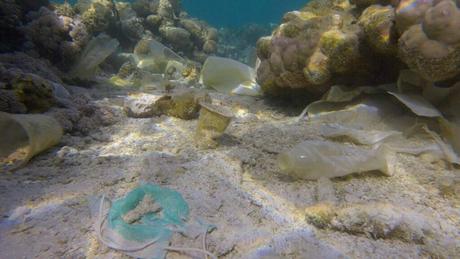
What Are The Climate Risks In Barbados?
Barbados is facing some serious climate risks such as rising sea levels, stronger and more frequent weather patterns, coral reef damage, and water shortages. Climate change is making these risks even worse, putting the island’s environment, infrastructure, and economy at stake.
How Does Climate Change Affect Tourism In Barbados?
The tourism industry in Barbados is being impacted by climate change, which is causing beach erosion, harming coral reefs, and increasing extreme weather events. This harms the island’s natural beauty, lessens its appeal to tourists, and has a negative effect on the local economy.
What Are The Environmental Issues In Barbados?
Barbados faces various environmental challenges such as coastal erosion, coral reef decline, deforestation, water scarcity, and pollution. Climate change makes these problems worse, posing long-term threats to the island’s ecosystems and natural resources.
Which Caribbean Countries Are Most Affected By Climate Change?
In the Caribbean, low-lying island nations like Barbados, Antigua and Barbuda, and the Bahamas are among those most impacted by climate change. These countries’ infrastructure and ecosystems are seriously threatened by extreme weather, coastal erosion, and rising sea levels.
What Is Barbados Policy On Climate Change?
Barbados is taking action against climate change by implementing both adaptation and mitigation strategies. Programs like the Coastal Risk Assessment and Management Program (CRMP), as well as a promise to switch entirely to renewable energy sources by 2030, are examples of these. These actions are intended to lessen greenhouse gas emissions and strengthen the island’s resistance to the effects of climate change.
How Will Climate Change Affect Caribbean Islands?
The Caribbean islands will be impacted by climate change through increased sea levels, frequent and intense storms, harm to marine ecosystems, and water scarcity. The local community’s infrastructure, economy, and general well-being are at risk as a result of these effects.
Conclusion: Adapting to a Changing Climate (in Barbados and Beyond)
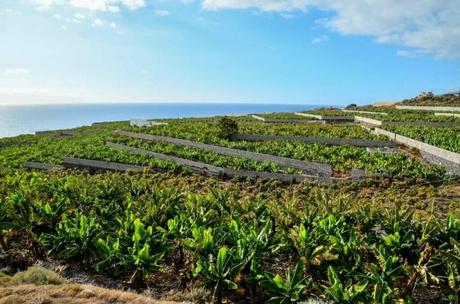
Numerous climate change effects are currently having an adverse effect on Barbados’ environment, agriculture, food security, and public health.
To overcome these challenges and develop resilience for the future, Barbados needs to take proactive measures and implement adaptive strategies.
Barbados can strengthen its resistance to the effects of climate change and safeguard its distinctive environment for future generations by taking adaptation and mitigation measures. It’s crucial to keep in mind that combating climate change is crucial for the entire planet, not just Barbados.
We invite you, our readers, to contribute your thoughts and ideas on how we can cooperate to safeguard this lovely island and its inhabitants from the mounting threat of climate change.

